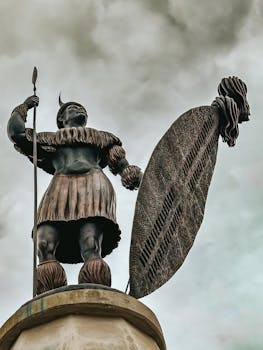The gaming world woke up to shocking news this week. Electronic Arts, the legendary publisher behind FIFA, Madden NFL, The Sims, and Battlefield, is being taken private in a jaw-dropping $55 billion deal. This isn’t just another business transaction it’s the largest leveraged buyout in history, surpassing even the massive TXU energy deal from 2007.
For gamers who’ve grown up with EA’s iconic franchises, this announcement feels like the end of an era. For 36 years, EA has been a publicly traded company, answering to shareholders and Wall Street analysts. Now, a consortium led by Saudi Arabia’s Public Investment Fund (PIF), along with private equity giant Silver Lake and Jared Kushner’s Affinity Partners, is reshaping the landscape of interactive entertainment in ways we’re only beginning to understand.
The Deal That Nobody Saw Coming
Let’s be honest—nobody expected this. Sure, there have been whispers about consolidation in the gaming industry. Microsoft bought Activision Blizzard for $69 billion in 2023. Sony has been gobbling up studios left and right. But EA going private? That’s a whole different ballgame.
The deal values EA at approximately $210 per share, representing about a 20% premium over its recent trading price. Shareholders will receive cash for their stocks, and the company will be delisted from NASDAQ. The transaction is expected to close by June 2026, pending regulatory approvals and shareholder votes.
What makes this particularly interesting is who’s behind it. PIF, Saudi Arabia’s sovereign wealth fund, already owned 9.9% of EA and is rolling that stake into the new deal. They’re joined by Silver Lake, a tech-focused private equity firm with deep pockets and a track record in entertainment investments. Then there’s Affinity Partners, the investment firm founded by Jared Kushner after his tenure in the Trump administration, adding another layer of complexity to the deal.
Why Now? Understanding the Timing
The gaming industry is in a weird spot right now. On one hand, gaming is bigger than ever—people are spending more time and money on games than movies and music combined. On the other hand, major publishers are struggling. Development costs have skyrocketed, game launches are increasingly risky, and several high-profile titles have flopped spectacularly in recent years.
EA itself has had a bumpy ride lately. While franchises like EA Sports FC (formerly FIFA) and Madden continue to print money through microtransactions and Ultimate Team modes, the company has faced criticism for relying too heavily on these cash cows. Some of their newer IP launches haven’t performed as expected, and competition from free-to-play giants like Fortnite and Call of Duty: Warzone has intensified.
Going private removes the pressure of quarterly earnings reports and short-term thinking that plagues publicly traded companies. EA’s CEO Andrew Wilson has emphasized that this move will allow them to “build the future of entertainment” without the constant scrutiny of public markets. Translation: they can take bigger risks, invest in long-term projects, and not worry about their stock price tanking if a single game underperforms.
The Saudi Arabia Factor: Gaming as Geopolitical Strategy
Here’s where things get really interesting. Saudi Arabia’s involvement isn’t just about making money—it’s about influence and diversification. The kingdom has made no secret of its ambitions to reduce dependence on oil revenue and become a major player in entertainment, sports, and technology.
PIF has been on a spending spree in recent years. They’ve invested in everything from professional golf (the controversial LIV Golf tour) to esports organizations, and now one of the world’s largest gaming publishers. For Saudi Arabia, gaming represents a strategic asset—a way to connect with global youth culture and establish soft power beyond their traditional spheres of influence.
Some industry observers are raising eyebrows at this development. Gaming has traditionally been seen as a relatively apolitical form of entertainment, but with sovereign wealth funds getting involved at this scale, that’s changing. Questions about content decisions, creative freedom, and the potential influence of government-backed entities on game development are legitimate concerns that the community is already discussing.
What This Means for Gamers
The million-dollar question—or should I say, the $55 billion question—is what this means for people who actually play EA games. Will your favorite franchises change? Will there be more microtransactions? Better games? Worse games?
The optimistic view is that going private could actually benefit gamers. Without the pressure to deliver consistent quarterly growth, EA might be more willing to take creative risks. They could greenlight passion projects that wouldn’t pass muster with shareholders focused on profit margins. Development studios might get more time to polish their games instead of rushing to meet arbitrary release dates that align with fiscal quarters.
The pessimistic view? Well, private equity has a reputation for maximizing short-term profits before eventually selling assets. While EA’s new owners say they’re committed to long-term growth, leveraged buyouts typically involve significant debt that needs to be serviced. That could mean more aggressive monetization, cost-cutting measures, or studio closures if projects don’t meet expectations.
Andrew Wilson will remain as CEO, and EA will stay headquartered in Redwood City, California, which suggests some continuity. But the company’s direction will ultimately be determined by its new owners’ vision and patience.
Industry Consolidation
This deal is part of a larger trend in gaming. The industry is consolidating at a breathtaking pace. Microsoft’s acquisition of Activision Blizzard, Sony’s purchase of Bungie, Embracer Group’s (now struggling) buying spree, and now EA going private these aren’t isolated incidents.
What’s driving this consolidation? A few factors:
Rising development costs: Modern AAA games cost hundreds of millions of dollars to make. Smaller publishers struggle to compete, making them attractive acquisition targets.
Subscription services: Platforms like Xbox Game Pass and PlayStation Plus need constant content. Owning studios ensures a steady pipeline of exclusive games.
Competition from mobile and free-to-play: Traditional premium games face intense competition from free-to-play titles on mobile and PC. Consolidation helps companies compete at scale.
Regulatory uncertainty: As governments around the world scrutinize gaming companies over loot boxes, data privacy, and content moderation, larger entities with legal resources have an advantage.
The EA deal represents the culmination of these trends. It’s also a signal that traditional private equity and sovereign wealth funds see gaming not just as entertainment, but as a strategic investment opportunity with long-term growth potential.
The Historic Nature of This Buyout
Let’s put the numbers in perspective. At $55 billion, this deal eclipses the previous record for a leveraged buyout—the $32 billion TXU energy deal from 2007. It’s also one of the largest acquisitions in entertainment history, period.
What makes a leveraged buyout different from a typical acquisition is that it’s primarily funded with borrowed money. The acquiring consortium will take on significant debt, using EA’s assets and future cash flows as collateral. This financial engineering allows them to purchase the company with less upfront capital, but it also creates pressure to generate returns to service that debt.
For context, this deal is smaller than Microsoft’s Activision Blizzard purchase, but that was a strategic acquisition by another gaming company, not a leveraged buyout by financial investors and sovereign wealth funds. The scale and structure of the EA deal make it unprecedented in the gaming world.
Next?
The deal still needs to clear several hurdles. Regulatory approvals from various governments, particularly in the US, EU, and UK, will be necessary. Given the increased scrutiny on tech and gaming deals in recent years, this isn’t guaranteed to be smooth sailing. Shareholders also need to approve the transaction, though with a 20% premium being offered, that seems likely.
If everything goes according to plan, EA will become a private company by June 2026. At that point, we’ll see whether the promises of long-term thinking and creative freedom materialize into better games, or if this becomes another case study in financial engineering reshaping an entertainment icon.
Steps
The EA takeover represents more than just a business transaction—it’s a watershed moment for the gaming industry. It signals that gaming has matured from a niche hobby into a mainstream form of entertainment that attracts the biggest players in global finance and geopolitics.
For gamers, the wait-and-see approach is probably the most reasonable stance. Judge EA’s new owners by their actions, not their press releases. Will development studios get more resources? Will beloved franchises receive the time and budget they deserve? Will new IP get a chance to shine? Or will we see more aggressive monetization and risk-averse sequels?
One thing is certain: the gaming landscape is changing rapidly, and EA’s historic buyout is just the latest chapter in that evolution. Whether this change is for better or worse will depend on whether the new owners truly understand what makes gaming special—it’s not just about the money, it’s about the creativity, community, and experiences that only interactive entertainment can provide.
The next few years will be fascinating to watch. EA has been part of gaming history for nearly four decades. Here’s hoping that its next chapter, under new ownership, writes new success stories rather than becoming a cautionary tale about what happens when finance meets art.



